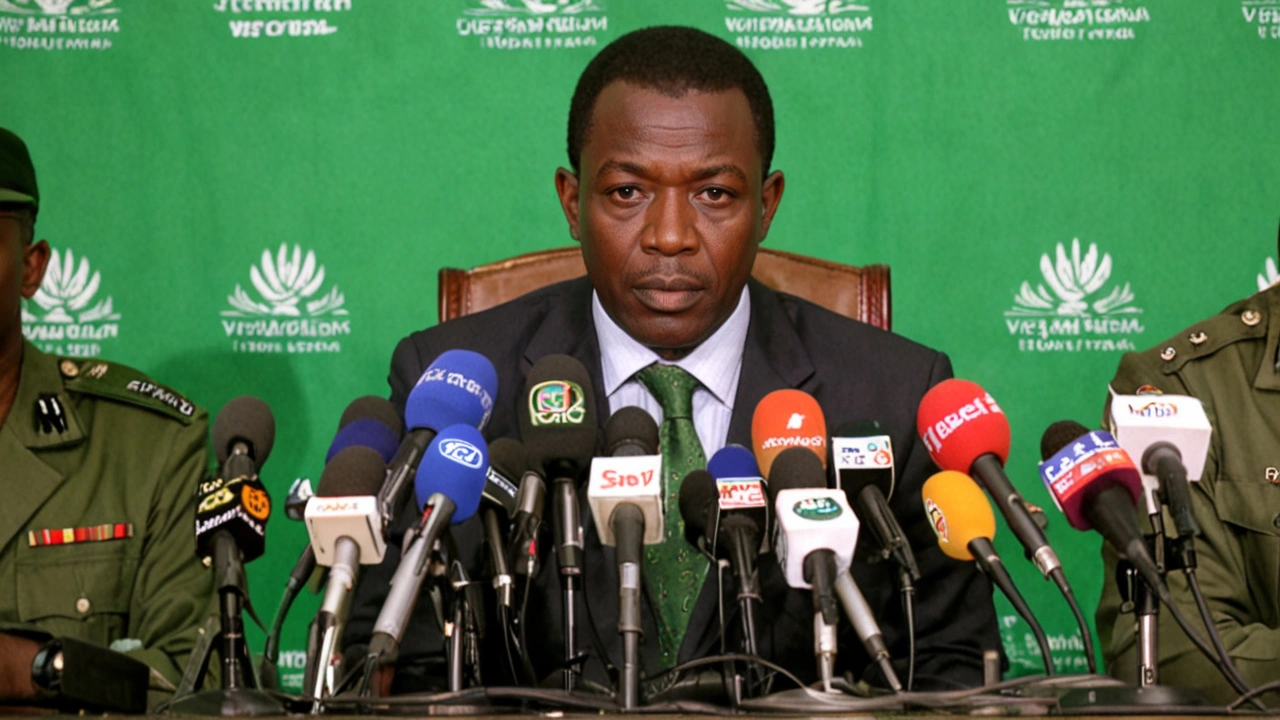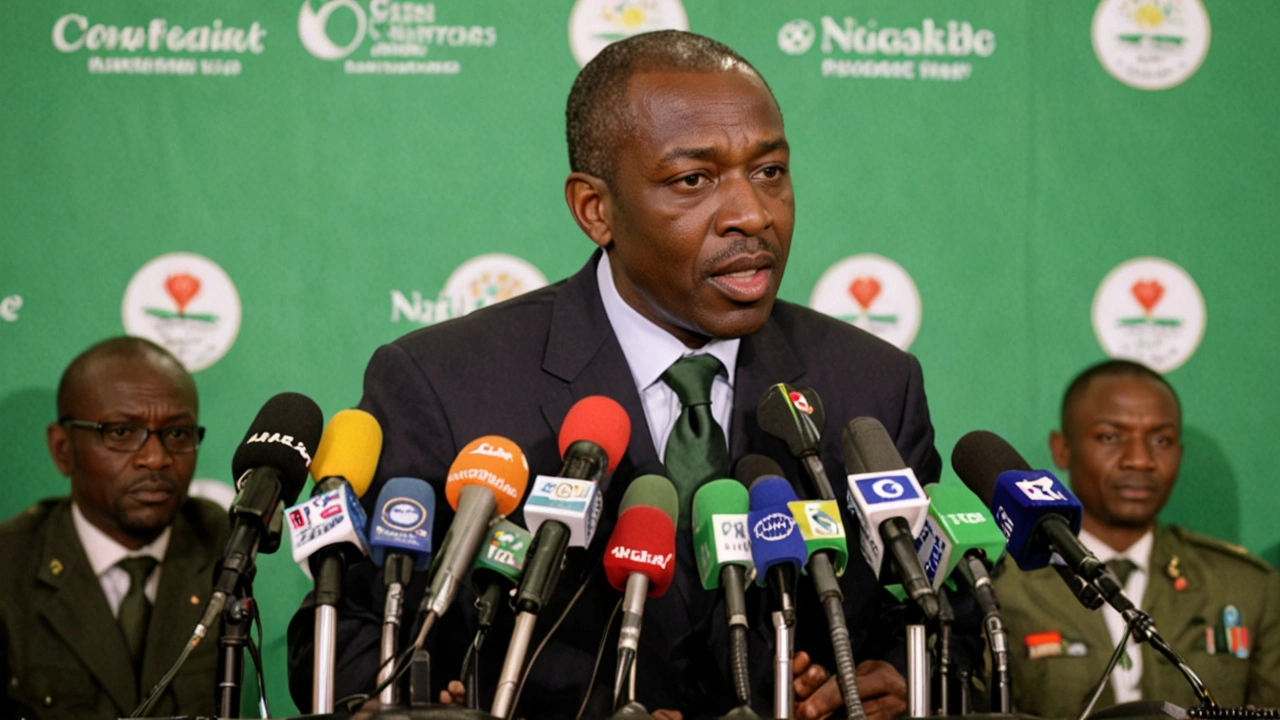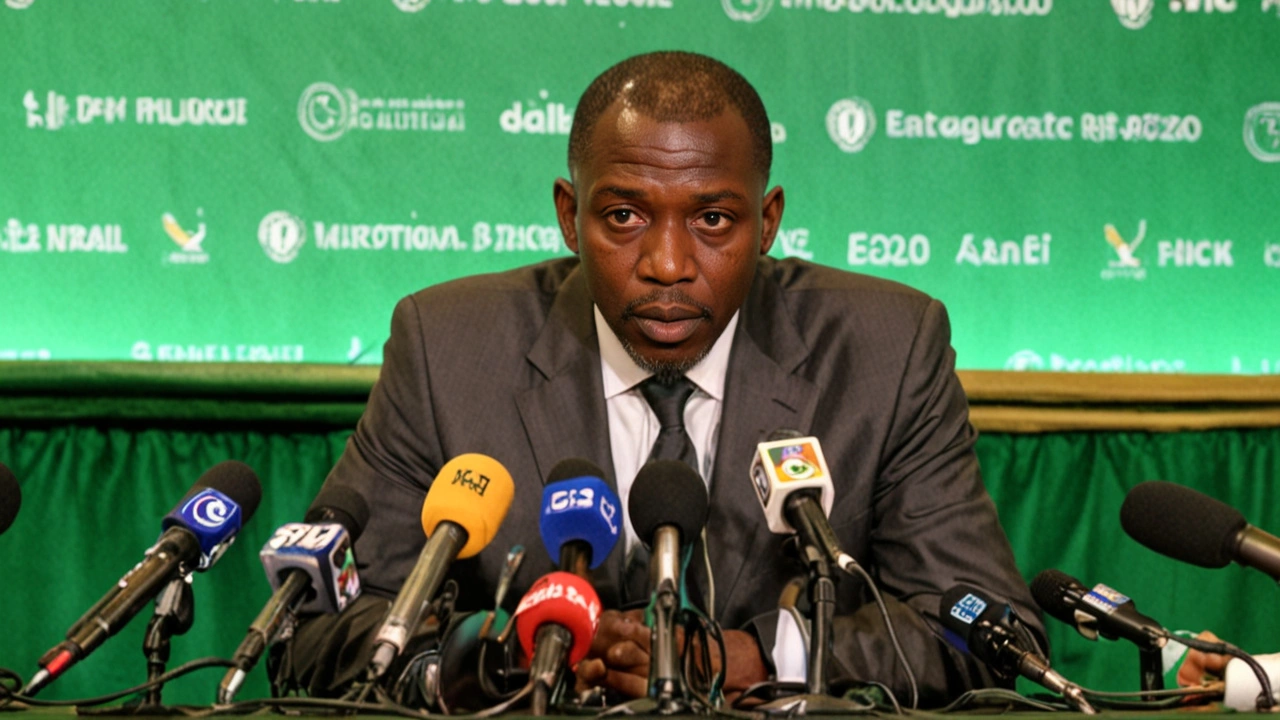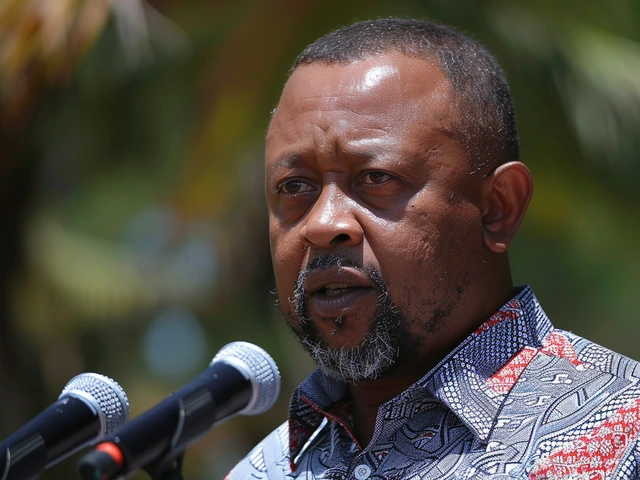Introduction
The Economic Community of West African States (ECOWAS) has issued a cautionary statement regarding the potential for regional disintegration, following the announcement of a new political alliance formed by the military rulers of Niger, Mali, and Burkina Faso. This alliance, known as the 'Confederation of Sahel States', marks a significant shift in the geopolitical landscape of West Africa and emerges as a direct challenge to both French influence and ECOWAS itself. This development raises substantial concerns about the stability, security, and political coherence of the broader West African region.
Formation of the Confederation
The military governments in Niger, Mali, and Burkina Faso have expressed dissatisfaction with the level of support they have received from France in combating jihadist insurgencies, which have plagued the Sahel region for years. In response, these nations have come together to form the 'Confederation of Sahel States', a move perceived as a bold assertion of their sovereignty and a repudiation of what they see as insufficient backing from Paris. The leaders argue that the new confederation will allow for a more collaborative approach in addressing common security challenges without external interference.
ECOWAS's Response
ECOWAS has responded with deep concern, stating that the formation of the Confederation of Sahel States could lead to significant political and economic repercussions. The regional bloc, which is committed to promoting economic integration and political stability among its member states, fears that this secession could result in political isolation and a loss of crucial international funding. Such isolation could, in turn, exacerbate the already precarious security situation in the region, making the fight against jihadist groups even more challenging.
Senegalese President Bassirou Diomaye Faye has been tasked with the challenging mission of negotiating with the breakaway states to persuade them to rejoin ECOWAS. The president's diplomatic efforts will be critical in determining whether a compromise can be reached to prevent further fragmentation of the region.

Underlying Issues
The decision to form the Confederation of Sahel States is rooted in deep-seated frustrations with the current state of international assistance in the region. Niger, Mali, and Burkina Faso, all grappling with relentless jihadist violence, have found themselves increasingly disillusioned with external partners. The perception that France, in particular, has not provided adequate support for their anti-jihadist operations has fueled discontent and a desire for greater regional self-reliance.
| Country | Main Concerns |
|---|---|
| Niger | Insecurity, lack of external support |
| Mali | Jihadist violence, sovereignty issues |
| Burkina Faso | Financial instability, security threats |
Wider Implications
The implications of this new alliance extend beyond the immediate concerns of the three countries involved. The formation of the Confederation of Sahel States could destabilize the broader West African region by undermining the collective efforts to combat terrorism and restore constitutional order. ECOWAS has been actively discussing the deployment of a 1,500-member unit to address these challenges, but the new alliance could complicate these plans and strain logistical and financial resources.
The prospect of political isolation also looms large, with the breakaway states potentially finding themselves cut off from essential international funding and support. This financial isolation could hamper their ability to effectively address the dire security situation and provide for their populations. Additionally, the fragmentation of the region could embolden other separatist movements, further complicating efforts to establish a stable and secure West Africa.
Path Forward
As ECOWAS grapples with this new geopolitical reality, the path forward remains uncertain. The bloc will need to navigate a complex web of diplomacy, security concerns, and economic challenges to find a viable solution. The success of President Faye's diplomatic mission will be critical in determining whether a peaceful resolution can be achieved.
In the meantime, the people of Niger, Mali, and Burkina Faso continue to face significant hardships as they contend with both internal strife and external pressures. The formation of the Confederation of Sahel States represents a bold, yet risky, attempt to chart a new course for the region. Whether this course will lead to greater stability and security or further disintegration remains to be seen.

Conclusion
The creation of the Confederation of Sahel States by Niger, Mali, and Burkina Faso has introduced a new dimension to the geopolitical landscape of West Africa. As these nations seek to assert their independence and address pressing security challenges, ECOWAS faces the formidable task of preventing regional disintegration. The outcomes of this unfolding situation will have profound implications for the future of West Africa, its stability, and its place in the global community.




From a strategic perspective, the United States must scrutinize any shift in West African alliances that threatens the established order of regional security architecture, as the emergence of a Sahel confederation could undermine both American interests and the broader paradigm of liberal democratic cooperation in the region.
It’s a total disaster and nobody saw it coming, the drama that’s unfolding is just unbelievable and should have been prevented
The formation of the Confederation of Sahel States, while undeniably bold, offers a unique opportunity for the peoples of Niger, Mali, and Burkina Faso to reclaim agency over their security challenges.
Historically, external interventions have often been perceived as paternalistic, and this new alliance could foster a sense of ownership that is essential for sustainable peace.
By pooling resources and intelligence, the three nations stand to create a more cohesive front against the insurgent groups that have tormented the Sahel for decades.
Moreover, regional solidarity can spill over into economic collaboration, unlocking trade corridors that have been stifled by insecurity.
Communities on the ground will likely experience a renewed sense of hope when they see their leaders taking decisive, collective action.
It is important to recognize that the success of such a confederation hinges on inclusive governance that respects the rights of all citizens, especially marginalized groups.
When youth feel heard and women are empowered, the social fabric strengthens, reducing the appeal of extremist narratives.
International partners, including ECOWAS, should consider constructive engagement rather than immediate isolation, offering technical assistance and capacity‑building initiatives.
A collaborative approach could mitigate the risk of economic sanctions that would otherwise exacerbate humanitarian crises.
In the meantime, diplomatic channels led by President Faye present a vital conduit for dialogue, and his efforts deserve robust support from the global community.
The potential for a ripple effect-where other West African states might adopt similar cooperative frameworks-should not be dismissed lightly.
Such a ripple could ultimately lead to a more resilient and interconnected Sahel, capable of withstanding external pressures.
Nonetheless, vigilance remains necessary to ensure that any power imbalances within the confederation do not replicate the very issues they aim to solve.
Transparency, accountability, and regular monitoring will be key pillars in maintaining both internal cohesion and external trust.
In summary, while challenges abound, the confederation’s promise lies in its capacity to transform frustration into constructive, home‑grown solutions that benefit the entire region.
Honestly, all that rose‑colored optimism ignores the grim reality that power grabs in the Sahel have historically led to more chaos, not the collaborative miracle you’re picturing.
i totally get ur point but think about the possibility that this confed could actually bring some real change 🤞 maybe if they keep the dialog open and avoid the usual traps, we could see a brighter future for the people there 😊 (sorry for the typos, cant stop typing fast)